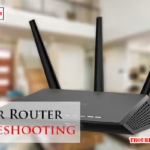Owning a Nissan Juke can be a thrilling experience. But, like any car, it can face issues.
If your Nissan Juke is acting up, you’re not alone. Many Juke owners encounter common problems. This guide will help you troubleshoot those issues. From engine troubles to strange noises, we’ll cover it all. Our goal? To get your Juke back on the road quickly.
Understanding these problems can save you time and money. So, let’s dive into the world of Nissan Juke troubleshooting. With the right knowledge, you can handle minor issues with ease. Stay tuned for practical tips and solutions.
Engine Problems
The Nissan Juke is a popular compact SUV. But like all vehicles, it can have engine problems. Knowing the common issues and their solutions can save you time and money.
Common Engine Issues
The Nissan Juke’s engine can face several problems. One common issue is rough idling. The engine may shake or vibrate. This can be due to spark plug issues or dirty fuel injectors.
Another issue is engine misfires. This happens when one or more cylinders do not fire properly. Causes can include bad spark plugs, ignition coils, or fuel system problems.
Some Juke owners report loss of power. This can be caused by a faulty turbocharger or clogged air filters. Regular maintenance can help prevent these issues.
Engine Overheating Solutions
Engine overheating is a serious problem. Check the coolant level first. Low coolant can cause the engine to overheat. Add coolant if needed.
Inspect the radiator for leaks. A leaking radiator can lead to overheating. Replace the radiator if you find any leaks.
Also, check the thermostat. A faulty thermostat can cause the engine to overheat. Replace it if it is not working properly.
Ensure the cooling fan is working. A broken fan can cause overheating. Replace the fan if it is not functioning.
Regular maintenance is key. Keep the cooling system in good condition. This can prevent engine overheating.
Transmission Troubles
Dealing with transmission troubles in your Nissan Juke can be stressful. The transmission is crucial for your car’s performance. Common issues include transmission slipping and gear shifting problems. Understanding these issues can help you troubleshoot effectively.
Transmission Slipping
One frequent problem is transmission slipping. This happens when your car changes gears unexpectedly. You might notice a delay in acceleration. The RPMs may increase without the car speeding up. This can be dangerous. Here are some common causes:
- Low transmission fluid: Check the fluid levels. Add more if needed.
- Worn-out gears: Gears wear out over time. They need replacing.
- Faulty solenoid: The solenoid controls fluid flow. It might need replacement.
Regular maintenance can prevent many of these issues. Always use the recommended transmission fluid.
Gear Shifting Issues
Another common issue is gear shifting problems. Your Nissan Juke may have trouble shifting gears. This can cause jerking or delayed shifting. Here are some potential causes:
- Clutch issues: The clutch may be worn or misaligned.
- Transmission fluid: Low or dirty fluid can cause shifting problems.
- Computer problems: The car’s computer might need an update or reset.
To diagnose these issues, consider the following steps:
- Check the transmission fluid level.
- Inspect the clutch for wear.
- Use a diagnostic tool to check for computer errors.
Addressing these problems promptly can prevent further damage. Regular inspections and timely repairs are key.
Electrical System Faults
The Nissan Juke is a popular compact crossover. But like all vehicles, it can face issues. One common area of trouble is the electrical system. Electrical faults can cause many problems. These problems can range from minor inconveniences to major issues. This section will guide you through some common electrical system faults in the Nissan Juke.
Battery Draining Quickly
One common issue is the battery draining quickly. This can leave you stranded with a car that won’t start. Several factors can cause this problem.
- Leaving lights on
- A faulty alternator
- Parasitic drain from electronic devices
To diagnose a quickly draining battery, follow these steps:
- Check if any lights are left on.
- Test the alternator with a multimeter.
- Inspect electronic devices for parasitic drain.
If the issue persists, consider replacing the battery or seeking professional help. Regular maintenance can prevent battery issues.
Faulty Wiring Fixes
Another issue is faulty wiring. Wiring problems can lead to various electrical faults. These faults can affect the car’s performance and safety.
Common symptoms of faulty wiring include:
- Intermittent electrical issues
- Flickering lights
- Blown fuses
To fix faulty wiring, follow these steps:
| Step | Description |
|---|---|
| 1 | Inspect the wiring harness for damage. |
| 2 | Use a multimeter to check for continuity. |
| 3 | Replace damaged wires or connectors. |
It’s vital to use the correct replacement parts. Improper fixes can cause more problems. When in doubt, consult a professional.

Credit: www.reddit.com
Brake System Concerns
Brake system concerns can be very alarming. It is essential to address them quickly. The Nissan Juke, like any vehicle, may face brake issues. Below, we will explore two common problems: brake pedal softness and brake noise solutions. These insights can help ensure your car remains safe.
Brake Pedal Softness
A soft brake pedal can indicate a problem. It may feel spongy or sink to the floor. This issue could be due to:
- Air in the brake lines
- Brake fluid leaks
- Worn brake pads
To diagnose this, you can check the brake fluid level. If it is low, there might be a leak. Inspect the brake lines for any signs of fluid. Also, examine the brake pads. Worn pads can lead to softness in the pedal. If you find any issues, it is best to consult a mechanic.
Brake Noise Solutions
Brake noise can be annoying and worrisome. Common noises include squeaking, grinding, and clicking. Each noise can indicate a different problem.
| Noise Type | Possible Cause | Solution |
|---|---|---|
| Squeaking | Dirt or rust on rotors | Clean or replace rotors |
| Grinding | Worn brake pads | Replace brake pads |
| Clicking | Loose brake components | Tighten or replace components |
To address these noises, start by inspecting the brake rotors for dirt or rust. Clean them if needed. Grinding noises usually mean the brake pads need replacing. If you hear clicking, check the brake components for looseness. Tightening or replacing them can solve the problem.
Suspension And Steering Issues
Driving a Nissan Juke can be a smooth experience. But sometimes, you might face suspension and steering issues. These problems can make your ride uncomfortable. Let’s look at some common issues and their solutions.
Suspension Noises
Do you hear clunking or knocking sounds from your Nissan Juke? These noises often come from the suspension system. Worn-out bushings or damaged shock absorbers can cause these sounds. Regularly check these parts to keep your ride smooth and quiet.
Another source of noise could be the strut mounts. If they are worn, they can create a creaking noise. Replacing the strut mounts can fix this issue. Always ensure the suspension components are in good condition.
Steering Wheel Vibration
Feeling vibrations in your steering wheel while driving? This issue can be alarming. Uneven tire wear is a common cause. Check your tires for any signs of wear or damage. Balancing your tires can also help reduce vibrations.
Another cause could be worn-out wheel bearings. These need to be checked and replaced if necessary. Steering wheel vibration can also result from a misaligned suspension. Ensure your suspension is properly aligned for a smoother ride.

Credit: www.youtube.com
Heating And Air Conditioning Problems
Heating and air conditioning problems in the Nissan Juke can be frustrating. These issues can make your driving experience uncomfortable. Understanding common problems helps you troubleshoot effectively.
Ac Not Cooling
Is your AC blowing warm air? Check the refrigerant levels first. Low refrigerant can prevent the AC from cooling properly. Another common issue is a clogged condenser. Dirt and debris can block airflow, reducing cooling efficiency. Inspect the condenser for blockages.
The AC compressor might also be faulty. A malfunctioning compressor can’t circulate refrigerant. Listen for unusual noises coming from the compressor. If you hear strange sounds, it might need replacement.
Heater Not Working
Is the heater not warming up your car? Start by checking the coolant levels. Low coolant can affect the heater’s performance. Ensure the coolant reservoir is filled to the right level. Also, inspect the thermostat. A stuck thermostat can prevent the engine from reaching the optimal temperature.
Another possible issue is a faulty heater core. The heater core transfers heat from the engine to the cabin. If it’s clogged, the heater won’t work. Look for signs of leakage or corrosion around the heater core. Regular maintenance can prevent these problems.
Fuel System Issues
The Nissan Juke can experience various fuel system issues. These problems often affect the car’s performance. Understanding the common issues helps in troubleshooting. Let’s focus on two main problems: Fuel Efficiency Problems and Fuel Pump Failures.
Fuel Efficiency Problems
One common issue is poor fuel efficiency. This can result from several factors. Here are some potential causes:
- Clogged fuel injectors: Dirty injectors can reduce fuel flow.
- Faulty oxygen sensor: This sensor helps control the fuel mixture.
- Dirty air filter: A dirty filter can restrict airflow.
- Old spark plugs: Worn plugs affect combustion efficiency.
Regular maintenance can prevent many of these issues. Always use quality fuel and replace parts as needed.
Fuel Pump Failures
Fuel pump failures are another common problem. The fuel pump delivers fuel from the tank to the engine. Symptoms of a failing fuel pump include:
- Difficulty starting the car
- Engine sputtering at high speeds
- Loss of power during acceleration
- Engine surging or stalling
If you notice these symptoms, it might be time to check the fuel pump. Here are some steps you can take:
- Listen for a whining noise from the fuel tank.
- Check the fuel pressure using a gauge.
- Inspect the fuel pump relay and fuse.
- Consider replacing the fuel filter.
If the problem persists, consult a professional mechanic. Replacing a fuel pump can be complex.
| Symptom | Possible Cause |
|---|---|
| Hard starting | Weak fuel pump |
| Sputtering engine | Clogged fuel filter |
| Engine surging | Faulty fuel pump |
Regular checks and maintenance can keep the fuel system running smoothly. Always address issues promptly to avoid further damage.

Credit: www.car.info
Interior And Exterior Concerns
The Nissan Juke is a popular compact SUV known for its unique design. Yet, like all vehicles, it can face some issues. In this section, we will focus on interior and exterior concerns. This will help you identify and fix common problems quickly.
Dashboard Warning Lights
Dashboard warning lights are vital indicators. They inform you about the car’s status and any existing issues. Here’s a table of common warning lights and their meanings:
| Warning Light | Meaning | Action Needed |
|---|---|---|
| Check Engine Light | Engine or emissions issue | Get the car checked by a mechanic |
| Battery Light | Battery or charging system problem | Inspect the battery and alternator |
| Oil Pressure Light | Low oil pressure | Check oil level and pressure |
Always address these warning lights promptly. Ignoring them can lead to serious damage.
Exterior Light Malfunctions
Exterior lights are crucial for safe driving. Common issues include:
- Burnt-out bulbs
- Faulty wiring
- Blown fuses
Follow these steps to troubleshoot exterior light issues:
- Check the bulbs: Replace any burnt-out bulbs.
- Inspect the fuses: Replace blown fuses.
- Examine wiring: Look for damaged wires and fix them.
Regular checks can help you identify and fix issues early. This ensures your Nissan Juke stays safe and reliable.
Frequently Asked Questions
How Do I Reset The Nissan Juke Check Engine Light?
Disconnect the battery for 15 minutes. Reconnect it. The light should reset.
Why Is My Nissan Juke Overheating?
Check coolant levels. Low coolant or leaks can cause overheating. Also, inspect the radiator and thermostat.
What Causes Nissan Juke To Lose Power While Driving?
Dirty fuel injectors, clogged air filters, or faulty spark plugs can cause power loss. Get them checked.
Why Is My Nissan Juke Making A Rattling Noise?
Loose parts, worn-out engine mounts, or exhaust system issues can cause rattling noises. Have a mechanic inspect it.
How Do I Fix Nissan Juke Transmission Problems?
Check transmission fluid levels. Low fluid can cause issues. If levels are good, consult a professional.
Conclusion
Dealing with Nissan Juke issues can be frustrating. Use this guide to help. It simplifies troubleshooting steps for common problems. Regular maintenance prevents many issues. Always consult a professional for complex repairs. Keeping your Juke in top shape ensures a smooth ride.
Safe driving!






